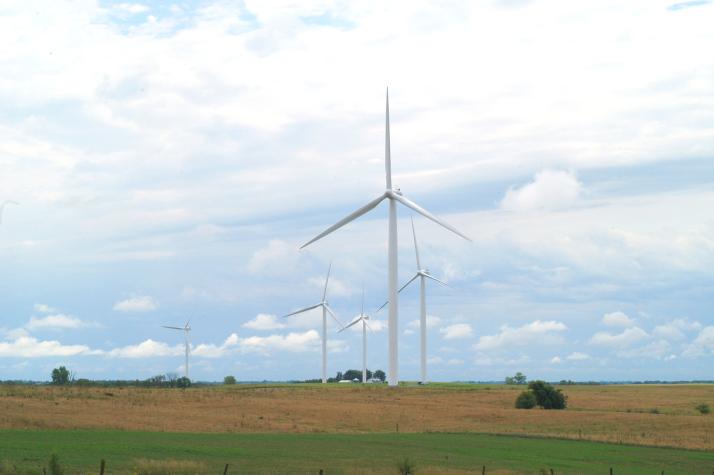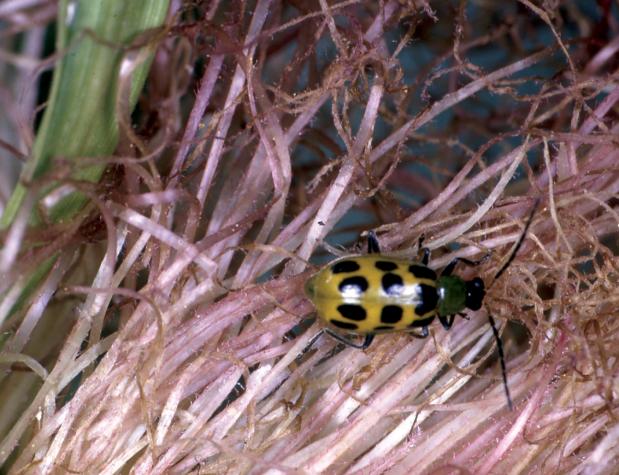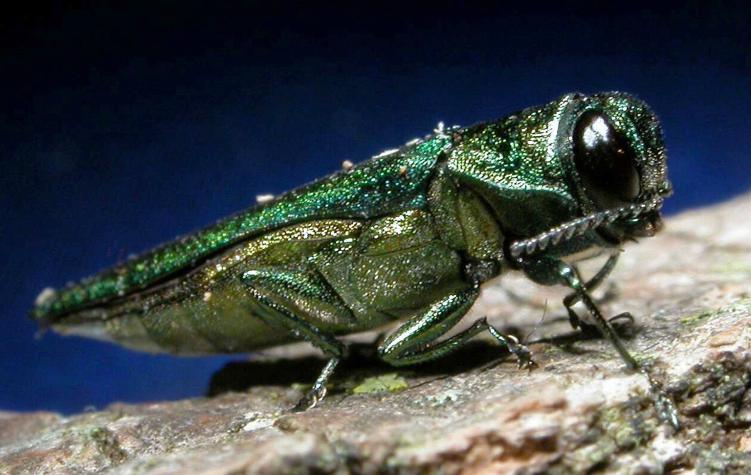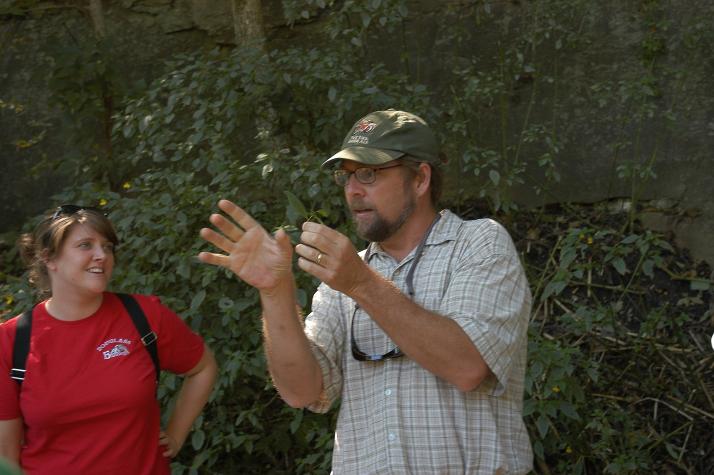
Wet weather conducive to tomato diseases
BLUE SPRINGS, Mo. - Wet conditions make tomato plants susceptible to devastating diseases such as early blight and Septoria leaf spot. Now is the time to combat them in the vegetable garden, said a University of Missouri Extension horticulture specialist. Typically, these diseases are controlled with fungicides applied at seven- to 10-day intervals, said Marlin Bates. But gardeners also can take other measures to prevent or at least…
Safe disposal of broken compact fluorescent light bulbs
BLUE SPRINGS, Mo. - Using compact fluorescent light bulbs is an easy and effective way to save on utility costs. "Using these bulbs can be very helpful to the family budget, but their use is not without risks," said Marsha Alexander, University of Missouri Extension housing and environmental design specialist.
Create a household inventory before disaster strikes your home
BLUE SPRINGS, Mo. - The damage from recent flooding reinforces the importance of having an up-to-date household inventory. Imagine trying to compile a detailed list of property for an insurance claim just after a natural disaster. You will remember big items like the furniture and appliances but not the small things that your family needs to function comfortably.
Mature trees and plants can cast shade over once-sunny garden
COLUMBIA, Mo. -Over time, a sunny garden may become a shady one as surrounding trees and shrubs mature. "Landscapes change their degree of shade, making it a challenge to grow garden plants," said Chris Starbuck, University of Missouri Extension horticulturalist. "Analyze the degree of shade in your garden periodically to determine if changes in plant materials may be needed," he said. "Choose plants that do well in less light."

Wind farms generate power, revenue, say MU Extension specialists
ROCK PORT, Mo. - The landscape in northwest Missouri is changing. Scattered across three counties, 75 turbines spin to harvest the wind.University of Missouri Extension specialists say that there are excellent opportunities for sustainable wind power in northwest Missouri. Four wind turbines supply all the electricity for the small town of Rock Port in Atchison County. The city of just over 1,300 residents is the first in the United…

Combating common pests of cucumbers, melons and squash
Manage pests like cucumber beetles and squash bugs with trap cropping, hand removal, and selective insecticides to protect your cucurbit crops.
Farm ponds can put food on the table
COLUMBIA, Mo. - Many Missourians may have an untapped resource to combat rising food costs right in their own back yard: Families with ponds at least one-quarter acre in size can take a bite out of grocery bills by raising bass and bluegill to eat, said a University of Missouri fisheries expert.
Fruits and vegetables: better than supplements
BLUE SPRINGS, Mo. - Many people try to fulfill their nutrition needs by taking dietary supplements. But instead of buying supplements, you might want to head to the produce aisle to meet your dietary requirements, said a University of Missouri Extension nutrition and health education specialist.

Emerald ash borer arrives in Missouri
COLUMBIA, Mo. - They're here: Emerald ash borers, which have killed tens of millions of ash trees in eight states, are now in Missouri. On July 23, USDA scientists discovered seven of the insects in traps in Wayne County in southeast Missouri.
Picking the right apple
BLUE SPRINGS, Mo. - Low-calorie apples are a dieter's dream-a medium apple has only about 80 calories. While they aren't bursting with vitamins and minerals like some fruits, apples are loaded with pectin, a cholesterol-lowering soluble fiber. "Apples also contain antioxidant properties, which may be their secret weapon against disease," said a University of Missouri Extension nutrition and health education specialist.
ATV safety often neglected, says MU Extension specialist
Learn key ATV safety tips to protect children and prevent injuries—helmets, proper gear, supervision, and more for safe riding.
Teaching your teen financial literacy
BLUE SPRINGS, Mo. - In a recent national survey of high school seniors' knowledge of basic personal finance and economic topics, students could answer only 48 percent of the questions correctly. "Adolescents clearly need a crash course in personal finance to prepare them for the future. Otherwise we are setting up a whole generation for financial failure," said a University of Missouri Extension family financial education specialist.
Freezing foods requires the right touch
BLUE SPRINGS, Mo. - Freezing can extend the shelf life of food by months, but preserving the quality of frozen food does require proper handling, said a University of Missouri Extension nutrition and health education specialist. "The secret to success is to freeze the right foods in the right containers, for the right length of time, at the right temperature, with the right handling," said Glenda Kinder. She offered these tips for…
Take steps to offset soaring heating costs
COLUMBIA, Mo.-Consumers may take some solace in forecasts for a winter of above-normal temperatures across the Midwest, but also should take steps to offset soaring heating costs, said a University of Missouri Extension housing specialist."There are some relatively inexpensive steps you can take to keep your heating bills from going through the roof," said Barbara Buffaloe.
Check chimney before burning wood for home heat
COLUMBIA, Mo. - Missourians planning to heat their homes with wood to offset soaring heating oil and natural gas prices should check their chimneys now, said a University of Missouri safety specialist. Heating oil users will pay 36 percent more on average than last year. Homeowners with natural gas face a 24-percent increase, according to the U.S. Department of Energy. "Safety precautions should be taken to prevent the threat of…
Establish a home orchard
Plan and grow a home orchard by choosing the right fruit plants, considering pollination, soil, and disease resistance.
Asian ladybugs can be beneficial predator on other insects
COLUMBIA, Mo. - Asian lady beetles, or ladybugs, may seem like a nuisance as they seek warmth in your home, but they can be helpful as predators on other insects."They are beneficial because both the immature larval and adult stages feed on aphids, mealy bugs, scales and other soft-bodied insects," said Mary Kroening, University of Missouri horticulturist.Adults can live up to three years. As winter approaches, the adults seek a…
Increasing the winter survival rate of alfalfa
BLUE SPRINGS, Mo. - While the harvest of corn and soybean is underway, perennial crops such as alfalfa begin the cold-hardening process. Producers can increase the ability of plants to withstand cold temperatures by implementing several key strategies, said a University of Missouri Extension agronomy specialist. "First, a four- to six-week fall rest period is recommended for alfalfa stands," said Julie Abendroth.
Fall is time to clean up your garden, plant trees and shrubs
COLUMBIA, Mo. - Fall is a good time to clean up your garden and plant trees and shrubs, said a University of Missouri horticulturist."The key factor in plant establishment is root growth, and the faster the roots grow into the back-fill area of a new plant, the more successfully the plant will become established," said Mary Kroening.
Working with horses helps cancer survivors
COLUMBIA, Mo. - Therapists and counselors have used equine-assisted therapy to help people with learning, physical and behavioral problems. Now it's being used to help cancer survivors cope with the challenges and fears they face after treatment.

MU researchers help high school teachers bring Missouri River history to life
COLUMBIA, Mo. - Students at Frederick Douglass High School in Columbia are learning about the Missouri River and its history through a series of field trips and activities developed by their teachers in collaboration with researchers from the University of Missouri School of Natural Resources.
Put your pasture lease agreement in writing
BLUE SPRINGS, Mo. - High commodity prices provide an opportunity for landowners to increase their income by converting pasture to crop production. This has created urgency among cattlemen to secure grazing land for their cattle and other livestock, said a University of Missouri Extension agriculture business specialist.
Cool-loving Chinese cabbage grows well in Missouri autumn
COLUMBIA, Mo. - The warm, sunny days and cool nights that come with a typical Missouri fall provide ideal conditions for growing cool-loving vegetables such as Chinese cabbage, said a University of Missouri horticulturist."Chinese cabbage is a cool-season vegetable that grows best under short days with temperatures between 60 and 70 degrees," said David Trinklein.Temperatures above 75 degrees tend to cause bitterness and soft heads.
Preserve fall harvest's bounty
BLUE SPRINGS, Mo. - With plenty of moisture and mild temperatures, a bumper crop of fall produce is available. A University of Missouri Extension nutrition and health education specialist suggests ways to make the most of this abundance.
Drunk drivers make Halloween scary
COLUMBIA, Mo. - Sometimes on Halloween night the scariest face you'll see isn't wearing a mask, it's behind the wheel of a car.Children 12 and under are more than twice as likely to be hit and killed by a car on Halloween as on any other day of the year, according to Safe Kids USA."On Halloween nights, statistics on pedestrian accidents skyrocket," said Gary Maddox, director of the University of Missouri Extension Law Enforcement…
